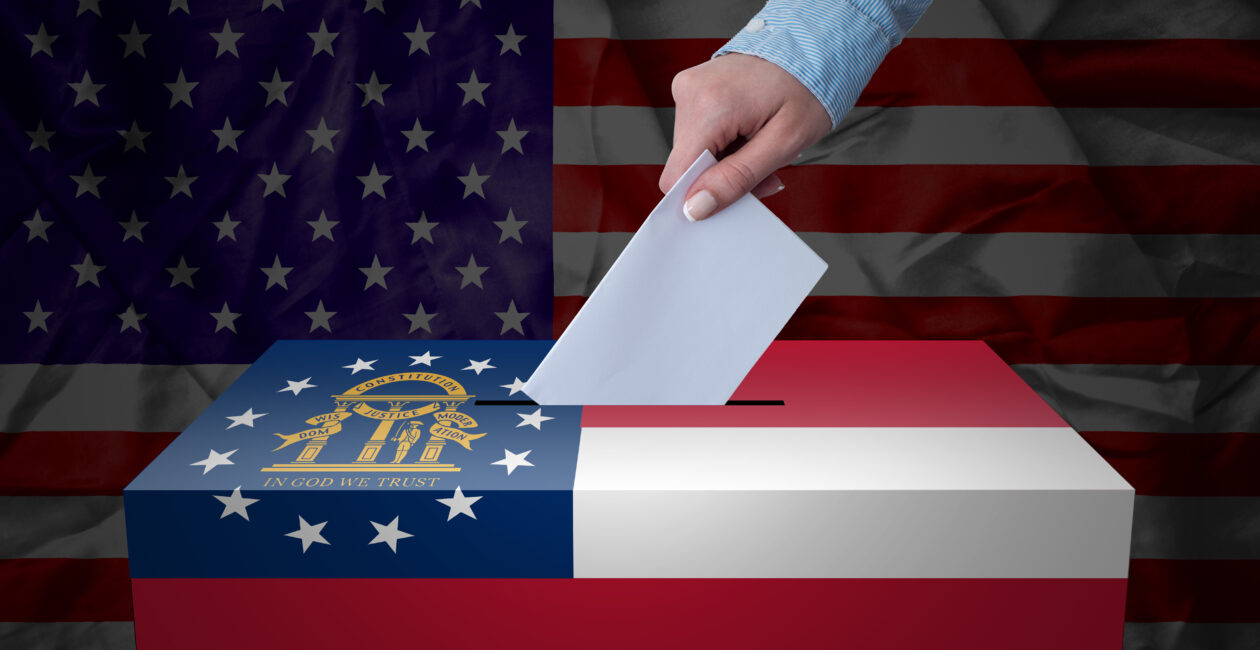Apollonian
Guest Columnist
Georgia lawmakers pass bill that would define antisemitism in state law
Politics Jan 25, 2024 6:49 PM ESTLink: https://www.pbs.org/newshour/politi...-that-would-define-antisemitism-in-state-law/
ATLANTA (AP) — Georgia lawmakers passed a bill Thursday that would define antisemitism in state law, with Republicans uniting in support of Israel’s war on Hamas and some Democrats splitting over fears of suppressing support for Palestinians.
“Today we can fight a pervasive and escalating threat in our state and fight it together,” said Senate President Pro Tem John Kennedy, a Macon Republican who guided the bill to Senate passage, 44-6. The measure had stalled in a Senate committee in 2023.
The House later agreed to changes, voting 129-5 for passage. Republican Gov. Brian Kemp said he would sign the bill, saying it “builds on our commitment to protect Georgians from criminal acts, including those based on hate.”
Sponsors say adopting the definition put forward by the International Holocaust Remembrance Alliance would help prosecutors and other officials identify hate crimes and illegal discrimination targeting Jewish people. Georgia has a hate crimes law that allows higher criminal penalties for crimes motivated by certain types of bias.
The definition, which is only referred to in the bill, describes antisemitism as “a certain perception of Jews, which may be expressed as hatred toward Jews. Rhetorical and physical manifestations of antisemitism are directed toward Jewish or non-Jewish individuals and/or their property, toward Jewish community institutions and religious facilities.”
READ MORE: Who are the Palestinian and Jewish-led groups leading the protests against Israel’s action in Gaza?
Some lawmakers opposed the bill, saying they thought it would be used to censor free speech rights.
“The First Amendment guarantees our rights as citizens to criticize any government, foreign and domestic,” said Sen. Nikki Merritt, a Lawrenceville Democrat. “Does our Constitution not mean anything?”
But supporters say the definition will only come into play after someone has committed a crime.
“This legislation is not about stifling free speech,” Kennedy said. “Nor is it about the government stopping someone from simply sharing their views. It is about safeguarding the dignity and the safety of our Jewish friends and neighbors.”
In at least eight states nationwide, lawmakers are working on measures to define antisemitism, part of an upsurge of legislation motivated in part by the Israel-Hamas war. Arkansas passed such a law last year. New bills are pending this year in Indiana, Florida, Massachusetts, New Jersey and South Dakota.
The measure grew only more fraught with the start of the Israel-Hamas war. Some protesters chanting “Free Free Palestine!” were dragged from a committee room by police Monday, prompting one arrest. That came after some Jewish residents of Georgia testified they had experienced a surge of bias incidents, including an antisemitic group that hung a Jewish person in effigy outside a Macon synagogue over the summer.
Ghada Elnajjar, a Palestinian mother from the Atlanta suburb of Alpharetta, said she was concerned the bill could embolden those seeking to stifle criticism of Israel.
She was particularly worried about her sons, saying they have been posting social media messages criticizing Israel for civilian deaths in Gaza. The sons have also worn keffiyehs, the black and white checkered scarfs that symbolize Palestinian solidarity.
The bill “might take a simple thing as wearing a keffiyeh or a social media post and take it a step further and criminalize it and jeopardize my boys’ future,” she said.
READ MORE: How did genocide become a crime and why is South Africa accusing Israel of committing it? [see https://www.pbs.org/newshour/world/...outh-africa-accusing-israel-of-committing-it/]
State Rep. John Carson, a Marietta Republican who sponsored the bill, told the House the bill shows “Georgia stands with our friends in the Jewish community.” Rep. El-Mahdi Holly, a Stockbridge Democrat and one of Georgia’s handful of Muslim lawmakers, retorted, “I wish that was true of Palestinians as well.”
Some opponents said Thursday that they didn’t want to choose sides in the Israel-Hamas war.
“We can mourn the loss of both Israeli and Palestinian lives,” said Sen. Kim Jackson, a Stone Mountain Democrat. “We can both condemn the unacceptable acts of antisemitism that are plaguing the Jewish community around our state and acknowledge that our citizens have the right to voice their dissent about the tremendous harm being visited upon Palestinian civilians.”
Some Democrats said that if Georgia moves to define antisemitism, then it should also define what prejudice against Muslims, African Americans or LGBTQ+ people looks like.
“If we’re going to define antisemitism in the law, then there a lot of other groups that experience racism, and they should also have definitions,” said Sen. Sally Harrell, an Atlanta Democrat who didn’t vote on the bill.
But other Democrats said they wanted to support Jewish constituents and allies, with some recalling the historic support of Jewish people in the struggle for Black civil rights.
“The Jewish community stood hand-in-hand with us,” said Senate Minority Gloria Butler, a Stone Mountain Democrat. “Today I return their favor and stand with them.”

